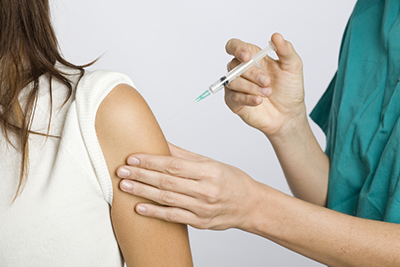 Before you become pregnant, learn how to protect yourself and your child from serious diseases. Talk to your healthcare professional to make sure you're up to date on all your vaccines.
Before you become pregnant, learn how to protect yourself and your child from serious diseases. Talk to your healthcare professional to make sure you're up to date on all your vaccines.
Find your vaccination record
It's important to keep an accurate record of your vaccinations. Sharing this information with your pre-conception and prenatal healthcare professionals will help determine which vaccines you'll need before and during pregnancy. If you or your healthcare professionals do not have a current record of your vaccinations, you can:
- Ask your parents or other caregivers if they still have your school immunization records. Ask them which childhood illnesses you've already had because illnesses in childhood can sometimes provide immunity in adulthood.
- Contact your previous healthcare professional or other locations where you may have received vaccinations (e.g., the health department, your workplace, or local pharmacies).
See the CDC's article on how to locate and keep track of vaccine records if you need more tips on how to find them. Even if you can't find your records, your healthcare professional can still protect your health and your baby in recommending the appropriate vaccines. Answer a few questions using the CDC's Adult Vaccine Self-Assessment Tool to find out which vaccines you may need before becoming pregnant.
Make sure your vaccination record if up to date
Even before becoming pregnant, make sure you are up to date on all your vaccines. Being up to date will help protect you and your child from serious, preventable diseases. For example, rubella is a contagious disease that can be dangerous if you get it while you are pregnant. It can cause miscarriage or serious birth defects.
Protect yourself against rubella with the MMR vaccine
The best protect against rubella is the MMR (measles-mumps-rubella) vaccine. If you aren't up to date with the MMR vaccine, you'll need it before you get pregnant. Make sure you have a pre-pregnancy blood test to see if you are immune to the disease. Most women were vaccinated with the MMR vaccine as children, but confirm with your doctor or other healthcare professional.
Avoid becoming pregnant until one month after receiving the MMR vaccine and your immunity is confirmed by a blood test.
